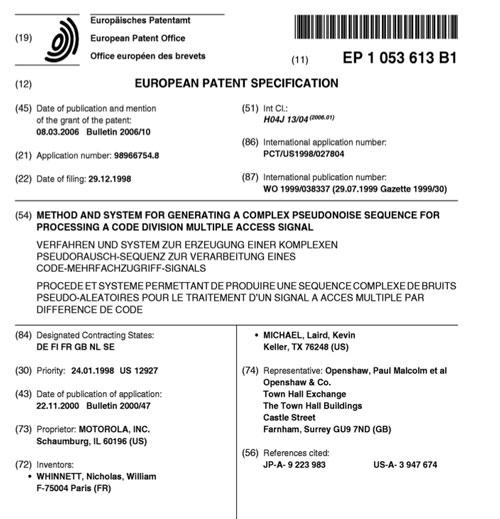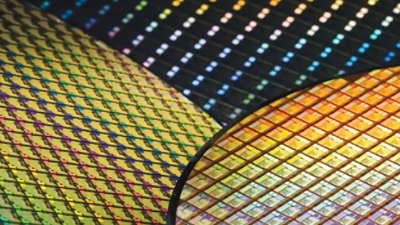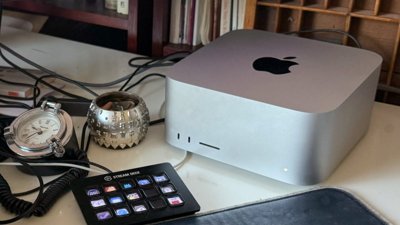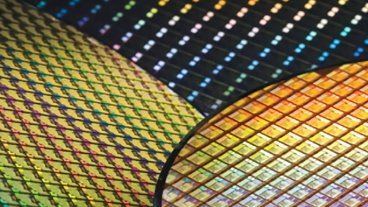Judge Andreas Voss of the Mannheim Regional Court ruled on Friday that Motorola would not be awarded an injunction against Apple's products for the patent in question. As detailed by Florian Mueller of FOSS Patents, Motorola had declared its own patent "essential," not any standard setting organization, but the court disagreed with Motorola.
Specifically, Judge Voss determined that Apple did not infringe on claim 9 of European Patent 1053613, entitled "Code and System for Generating a Complex Pseudonoise Sequence for Processing a Code Division Multiple Access [CDMA] Signal." The court found that Motorola failed to present conclusive evidence for infringement.
The victory by Apple in Mannheim was noteworthy because Motorola has already won two earlier patent infringement cases against Apple in that German court. In December, Motorola won a decision related to a GPRS patent, and last week Motorola was awarded an injunction against Apple related to its push services.
It's expected that Motorola will seek to enforce the injunction on the latter patent ruling as soon as possible. That means German iCloud users could soon need to reconfigure their e-mail clients or move to another service.
Motorola is in the process of a planned buyout from Google, owner of the Android mobile operating system that is already found on many of Motorola's products. The two companies are seeking regulatory approval for the $12.5 billion purchase to be finalized.
 Sam Oliver
Sam Oliver








 Amber Neely
Amber Neely
 Malcolm Owen
Malcolm Owen
 William Gallagher
William Gallagher

 Christine McKee
Christine McKee






-m.jpg)



19 Comments
Hmmm. .
So it's as I mentioned yesterday. Moto's patent assertion wasn't truly FRAND, even tho Moto said it was "essential" and couldn't be worked around. No standards body had accepted it as essential tho, and in the judge's view it was not with no evidence that Apple used the patented tech in any device.
Had the court deemed it was truly essential then Apple would not have been allowed to claim they didn't make use of it.
All in all very confusing.
Hmmm. .
So it's as I mentioned yesterday. Moto's patent assertion wasn't truly FRAND, even tho Moto said it was "essential" and couldn't be worked around. No standards body had accepted it as essential tho, and in the judge's view it was not with no evidence that Apple used the patented tech in any device.
Had the court deemed it was truly essential then Apple would not have been allowed to claim they didn't make use of it.
All in all very confusing.
is this a different case or the same one from the previous discussion?
Does that mean that get the phones back on the store?
Does that mean that get the phones back on the store?
The phones never left the stores...and the online merchants only had to remove the products for what? a few hours?
is this a different case or the same one from the previous discussion?
The discussion has been mixed between the German suits and the similar US actions. Some posters have been confusing the two, but the basic assertions are the same. Moto claims some of the asserted patents are "essential", standards bodies haven't accepted some of them as part of any FRAND-encumbered standard, Apple claims not to use them and thus not infringing, while at the same time saying Moto is unfairly using essential patents against them. Clear as mud, right?
FWIW there are (at least) three different German actions initiated by Moto against Apple. So far Moto has come out on top in two of those.
I can't emphasize enough how confusing these cases have become.